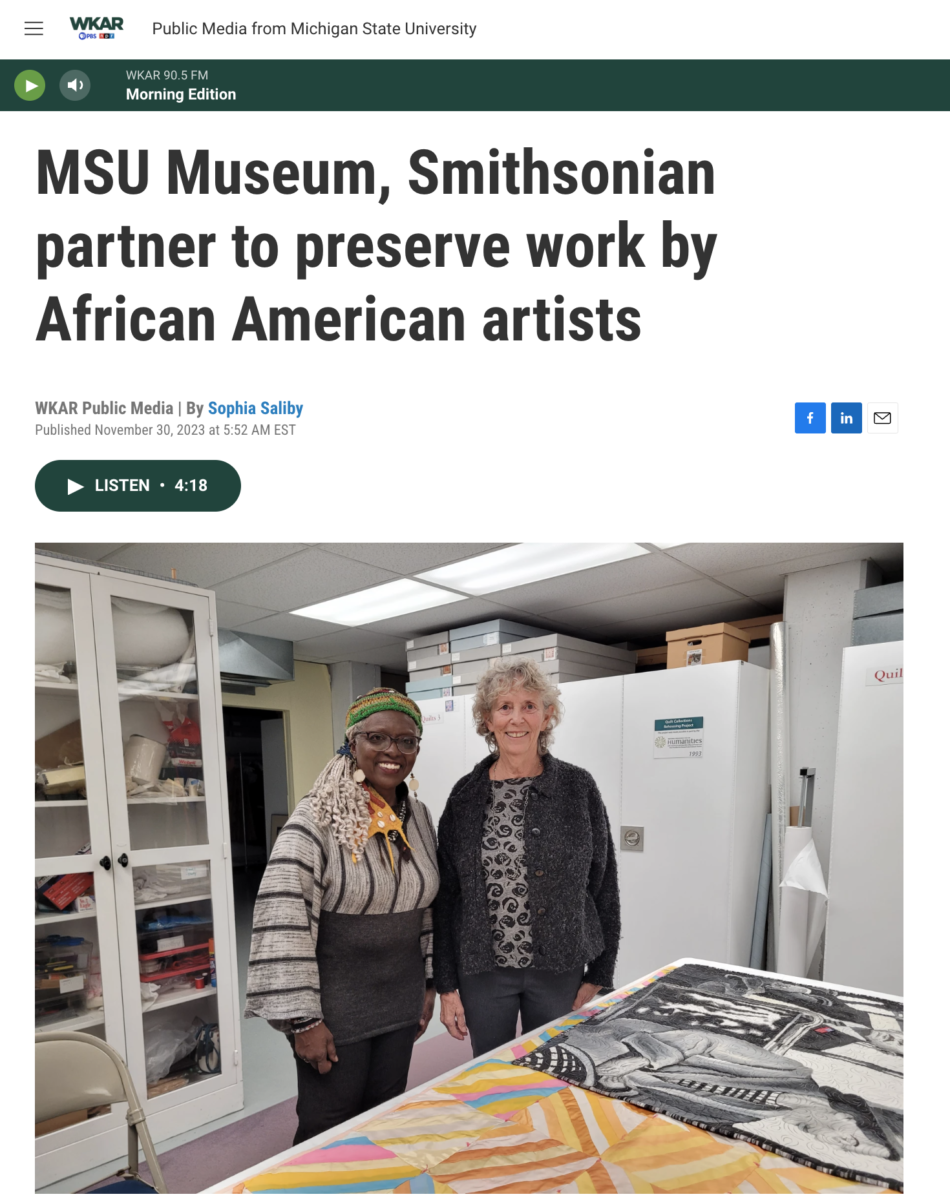The MSU Museum, a Smithsonian Affiliate, is one of four organizations selected to take part in a project through the Smithsonian’s Center for Folklife and Cultural Heritage to expand the visibility of underrepresented local elder African American artisans. The project—Cultural Sustainability and Legacy Planning for Craft Artists—was conceived to assist makers in safeguarding their stories while building relationships among artists, between elders and youth, and with local cultural institutions.
The three-phased craft legacy planning project kicked off with a three-day virtual “train the trainer” webinar Sept. 25-27. Through presentations and in-depth discussion, museum and cultural heritage professionals were equipped with resources and information on how to best guide local African American artists in cultural sustainability and legacy planning. Session topics included community-centered practices for documenting oral histories, digitally archiving works, and using social media as a tool for business and documentation. The six-month project will include two additional phases including community projects and workshops spearheaded by the four participating organizations.
Cultural Sustainability and Legacy Planning for Craft Artists is part of the Center for Folklife and Cultural Heritage’s African American Craft Initiative. The initiative’s goal is to expand visibility of African American artists and makers through collaborative research and documentation, public programming and community building among makers and organizations across the broader U.S. and international craft communities.
Sophia Saliby, of WKAR Public Media, recently highlighted the MSU Museum’s involvement in preserving African American craft heritage during a broadcast of All Things Considered.
